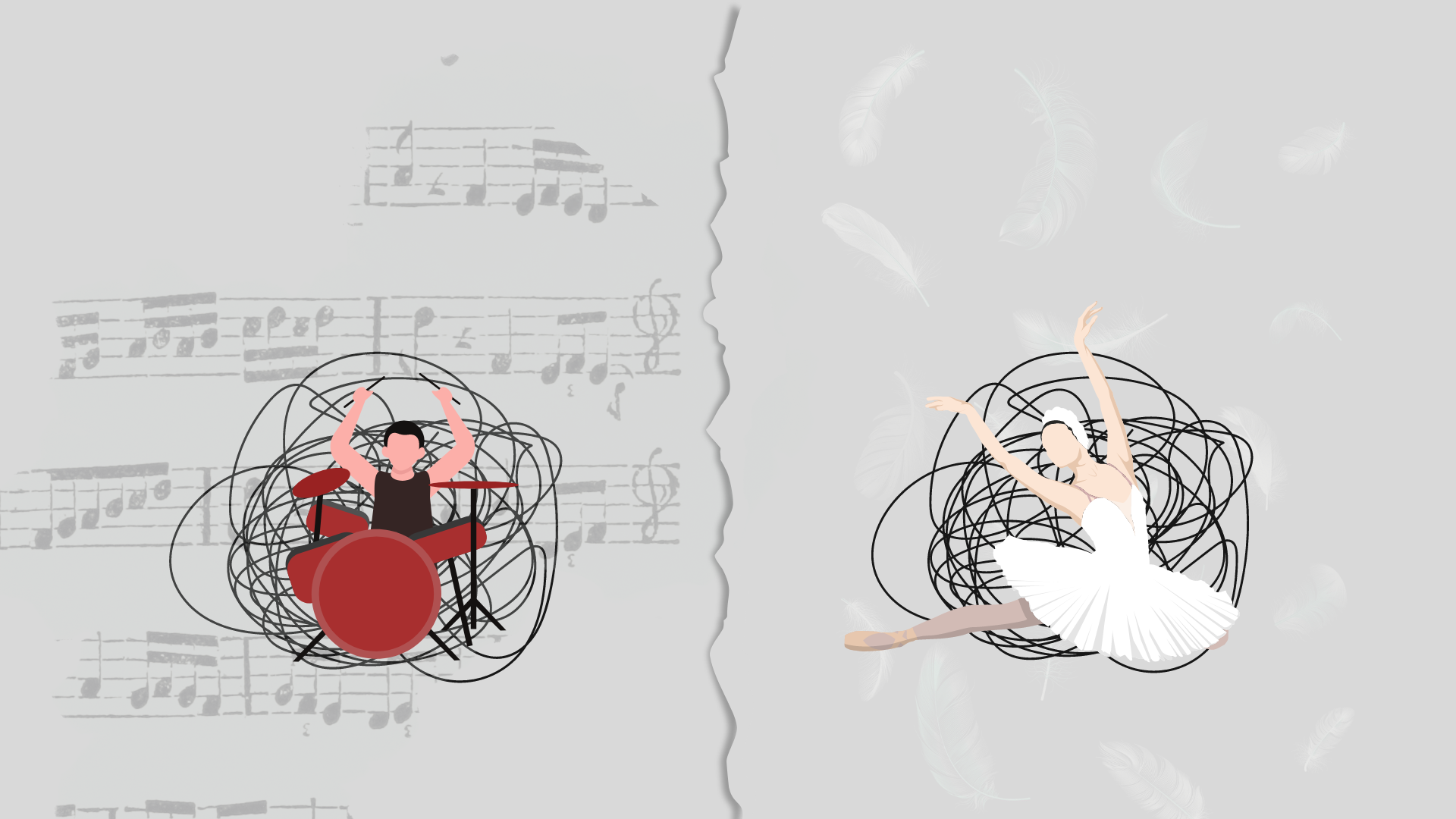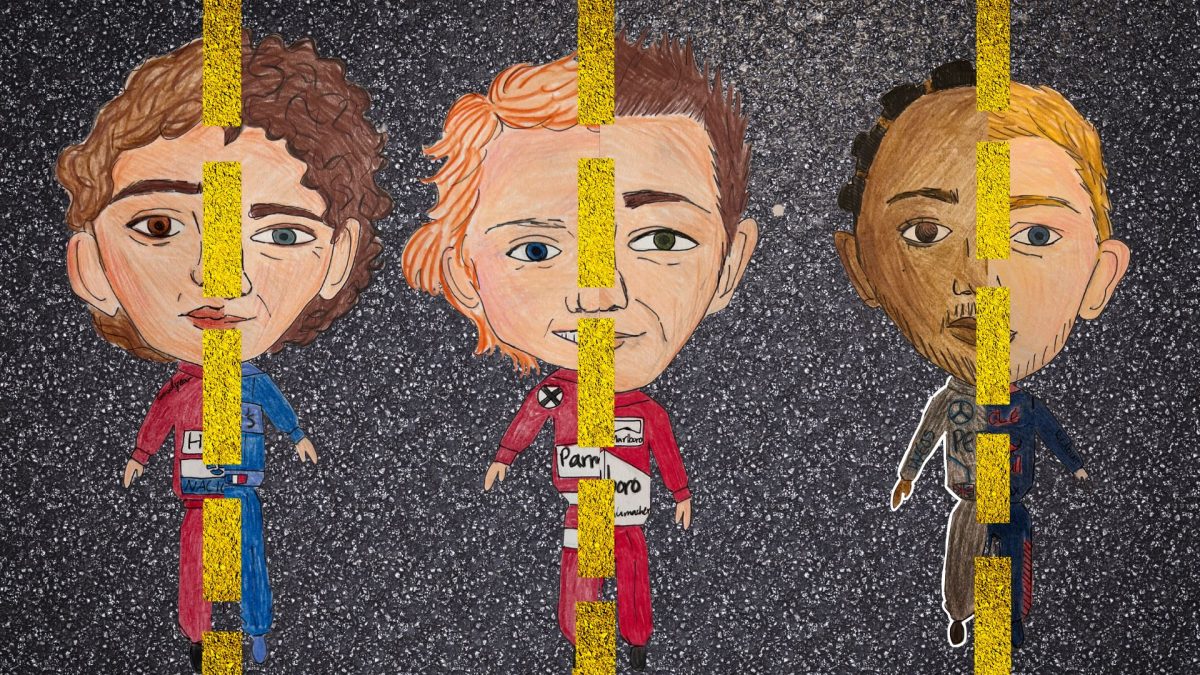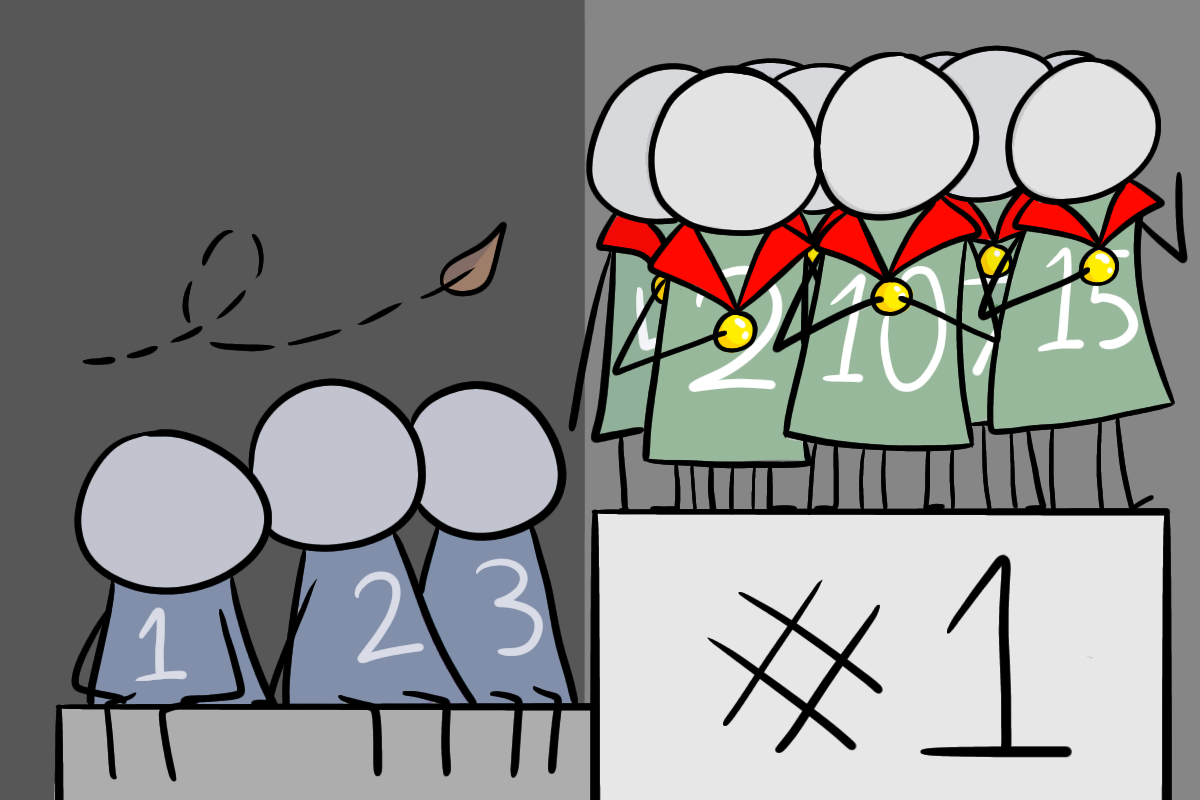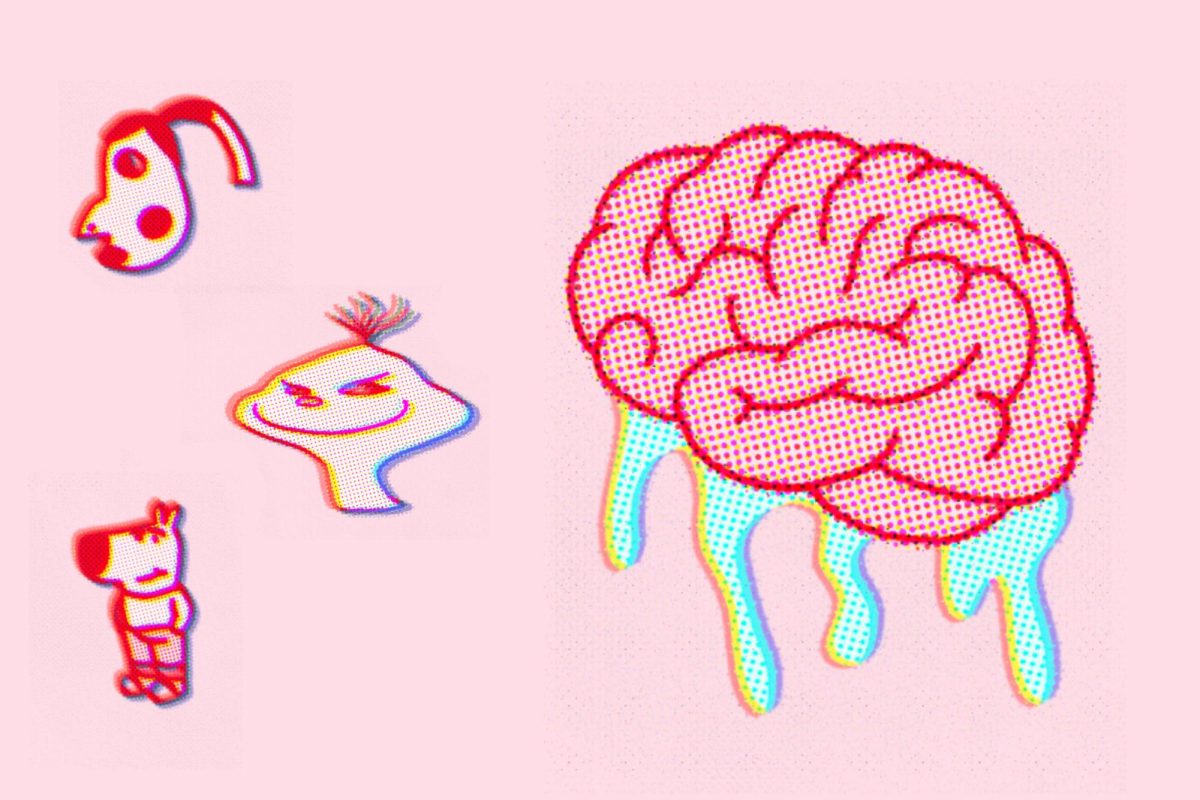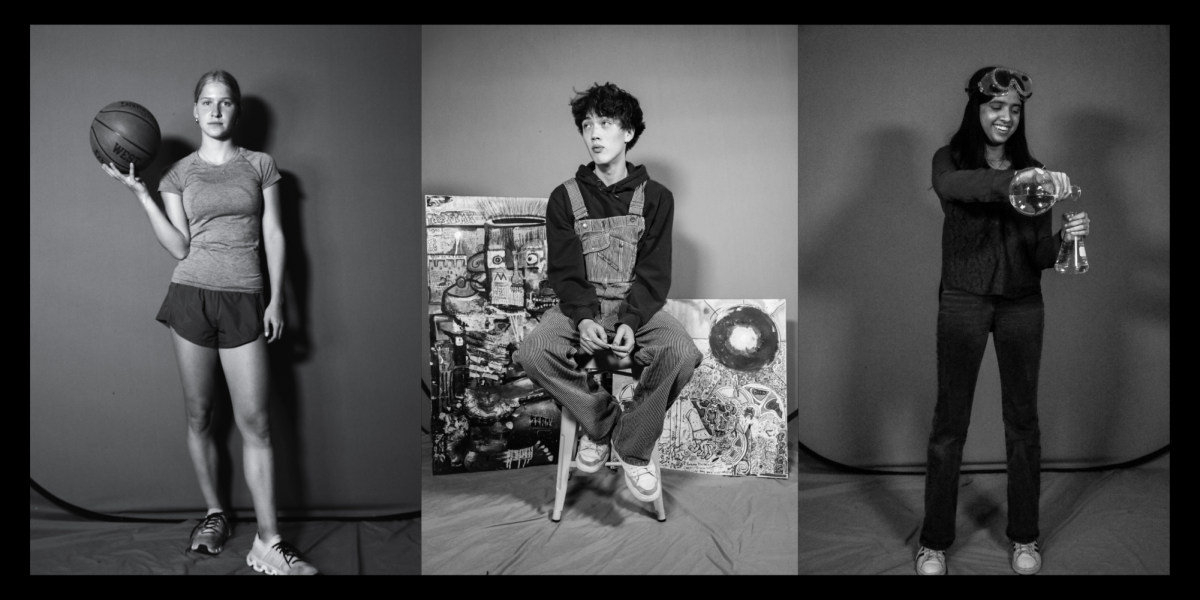It’s no secret that the music industry and the ballet industry are among the most rigorous artistic pursuits in the world. Combine that with Gordon Ramsay-esque instructors; you have the perfect recipe for the descent into madness. Whether it’s to fulfill a family legacy or keep the spirit of our craft alive, the pursuit of greatness is a grueling process. Oftentimes, it leaves us with irreversible damage.
**Disclaimer: This story contains spoilers for both films.**
Black Swan (2010)
“Black Swan” follows aspiring prima ballerina Nina Sayers (Natalie Portman) as she fights to earn the role of Swan Queen in her studio’s latest production, Tchaikovsky’s Swan Lake. Nina obsesses over her every move as a ballerina and experiences psychosis as she is continuously tested by her director, Thomas Leroy (Vincent Cassel), and competition, Lily (Mila Kunis). Nina lives alone with a controlling mother, Erica (Barbara Hershey), who is determined to preserve her childhood innocence. This ultimately gets in the way of Nina’s breakthrough performance and leads to her downfall.
Whiplash (2014)
In “Whiplash,” determined jazz drummer Andrew Neiman (Miles Teller) works to be the top performer at his prestigious music conservatory. When Andrew is recruited by infamous jazz instructor Terence Fletcher (J.K. Simmons) and placed in the top jazz ensemble, he is pushed beyond the comfort of his ability which sacrifices his sanity. Andrew’s passion for the drums quickly transitions into an obsession with perfecting his craft. He is constantly being tested by Fletcher, having to neglect meaningful relationships in his life in order to keep up with the brutal nature of the ensemble.
The Desire to be Great
“Black Swan” director Darren Aronofsky was inspired by the concept of a double persona after reading Fyodor Dostoevsky’s “The Double: A Petersberg Poem.” The idea of a man’s double replacing his life, combined with the ballet “Swan Lake,” made for a thrilling yet ultimately tragic film. On the other hand, the inspiration for Damien Chazelle’s “Whiplash” came from within, through his own lived experience as a former jazz drummer. Terrence Fletcher’s abusive instruction methods in the movie are akin to those of Chazelle’s high school band director. Ultimately, both directors set out to tell a story about the destructive nature of an artist’s obsession with their craft.
The two movies open with each character in their element, both in a dimly lit room and wearing white. This is essentially the calm before the storm and the point in time where Andrew and Nina experience the most inner peace, as represented by the color white. “Whiplash” kicks off when Fletcher walks in on Andrew’s practice session and recruits him to join the Shaffer Conservatory Studio Band, the highest honor for a jazz musician at the Shaffer Conservatory of Music. For Nina in “Black Swan,” her path to turmoil begins when Thomas casts her as Swan Queen for the studio’s latest production, “Swan Lake.”
However, these roles did not come without struggle. Andrew initially served as an alternate for the studio band’s core drummer, Carl Tanner (Nate Lang). After discovering that Andrew can successfully perform the piece “Whiplash” from memory (unlike Carl), Fletcher demotes Carl, and Andrew takes his place as core drummer. For Nina, her role came as a result of fighting back against Thomas’s forward romantic advancements. Thomas was enticed by this behavior, and it proved to him that Nina was, in fact, capable of playing the Black Swan in addition to her exemplary portrayal of the White Swan.
As both characters adjust to their newly earned roles, they get their first taste of how ruthless their instructors really are. Nina’s position becomes threatened when Lily (Mila Kunis) shows up and dances the Black Swan to perfection. Nina’s greatest shortcoming derives from her persistent childhood innocence and pure presence. This frustrates Thomas because while Nina can dance the White Swan perfectly, she struggles to encapsulate the seductive, imprecise and effortless elements of the Black Swan. Fearing that Lily will take her place, Nina is pushed to train intensively for the Black Swan at the cost of her sanity.
In “Whiplash,” Andrew is quickly met by Fletcher’s hostility during his first rehearsal with Studio Band. We see Fletcher’s frustration with Andrew’s drumming pace escalate as the band performs “Whiplash.” Andrew gets a chair thrown at him, and Fletcher goes on to scream in his face, “Were you rushing, or were you dragging?” Additionally, Andrew is consistently reminded that, like Carl, he, too, can be replaced in a split second. In fact, throughout the movie, the two alternate as core drummers depending on how Fletcher feels about one’s performance at the given moment. Fletcher even went as far as to bring in Ryan Connolly (Austin Stowell), a drummer from Andrew’s prior lower-level band, to alternate with. This was more of a test to see how Andrew would react, and sure enough, Andrew was enraged. Andrew took his bitterness and crafted it into an intense drive to amplify his practice sessions, even at the price of his well-being, to become “one of the greats.”
However, the desire for perfection from both Nina and Andrew doesn’t come solely from passion; it also comes from fear of mediocracy. Specifically in relation to their parents. Andrew lives alone with his father, Jim Nieman (Paul Reiser), who holds a stable job as a high school teacher but is an unsuccessful writer. In the script, he is described as “Mild-mannered, soft-spoken, average in every respect. Has the eyes of a former dreamer.” Being so caught up in his own career, Andrew looks down on his father’s course in life. Nina’s mother, Erica Sayers (Barbara Hershey), was a former ballerina herself, yet never achieved significant success. She relies on Nina to achieve what she could never have. Nina obsesses over each minute detail of her dancing to guarantee security and stability as a ballerina. To let herself go for even a moment would be jeopardizing her career as she knows it.
From the sheer amount of pressure, Andrew and Nina’s obsessions worsen as they approach their respective show dates. The two characters transition into wearing darker colors now, black representing their complete transition into utter chaos and destruction. Andrew develops a dismissive mentality, believing he is superior to everyone in his life. During a heated family dinner, Andrew makes it clear that he will put drumming above all else.
Nina begins to experience hallucinations and sees a rather evil double of herself. She is so far gone that she even hallucinates herself becoming a swan, legs twisted and eyes blood-red.
Alas, the rapid and extreme changes these characters face throughout their movies come to a climax during their final performance. Initially, they both face a moment of failure. When Nina dances the White Swan, she slips out of her partner’s grip and falls to the ground. Prior to his final performance, Andrew anonymously reports Fletcher for his abusive methods of teaching (which gets him fired from the conservatory) and takes a break from drumming. On a night out, Andrew wanders into an underground bar with a live jazz band, where he reunites with Fletcher. Fletcher offers him a position in his new band, and Andrew accepts. When Andrew gets on stage, he learns that Fletcher knew it was he who submitted the report, and Fletcher set him up for failure by conducting the band to play songs Andrew never learned.
The final moments of each performance fully encapsulate the sheer torment of striving for greatness. Andrew is able to bounce back and goes on to lead the entire band himself, delivering a performance of the pieces he rehearsed in Studio Band. Watching from the side of the stage, Andrew’s father is astounded. Andrew makes eye contact with Fletcher as blood droplets fall onto his drumkit, an expression of astonishment and satisfaction on both of their faces. They break eye contact, and Andrew jumps straight back into drumming like his life depends on it.
Nina dances the Black Swan flawlessly and completely mesmerizes the audience. At the end of the group dance, Nina falls back into a mattress as an injury from her abdomen seeps blood to the surface of her dress. Nina’s mother watches in horror. In her final moments, before she blacks out from the loss of blood, Nina says to Thomas, “I felt it. Perfect. It was perfect.”
Conclusion
The endings of “Whiplash” and “Black Swan” leave a lot of room for interpretation. In “Black Swan,” Nina’s death can be interpreted as legitimate or a representation of the destruction of her old self and transition from childhood innocence to adulthood maturity. At first glance, “Whiplash” seems to have a happy ending, with Andrew achieving everything he ever wanted, but it’s more bittersweet than anything. It shows that Andrew still submits to Fletcher and subconsciously views him as a reasonable instructor. Additionally, it shows Andrew’s complete devotion to his craft and lack of regard for anything else in his life. He will likely die drunk and broke at 34, but Andrew is willing to make that ultimate sacrifice in exchange for greatness.

